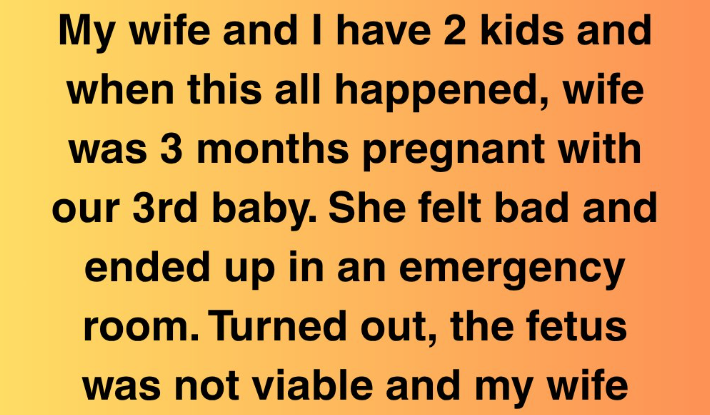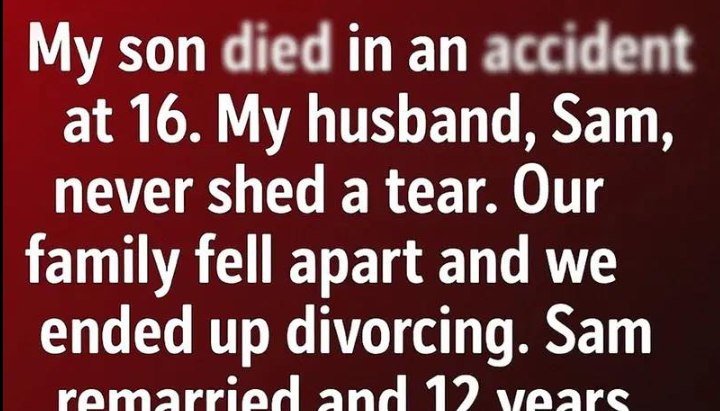My wife, Mireya, and I share two children, and when this chapter of our lives unfolded, she was three months along with our third. She began feeling unwell and soon found herself in the emergency room. The heartbreaking news came swiftly: the fetus was not viable, and Mireya was experiencing a miscarriage. Later that day, the doctors delivered another devastating revelation—her miscarriage had caused internal complications. They performed an urgent procedure to stop internal bleeding, which required removing her uterus.
I sat in the hospital, clutching a clipboard, my vision blurred by tears as I tried to comprehend the words: “Consent for hysterectomy.” It felt surreal. Hours earlier, we were dreaming up names and measuring her small bump. Now, we were mourning a child we’d never meet and a future we hadn’t realized was so precious to us.
Mireya tried to hold herself together, but I could see the cracks forming every time she gazed at our youngest, Isla, asleep in her car seat. At two years old, Isla seemed to sense the heavy air, clinging to her mother’s neck like a lifeline for days.
We returned home empty, carrying a grief that seemed to echo in every corner of our house.
Friends dropped off casseroles and soft blankets. My sister sent a bouquet of flowers. Their intentions were kind, but words often fell short, and they’d say things like, “You’re so blessed to have two wonderful kids.” I wanted to shout that it wasn’t the same. We’d lost a person. We’d lost a piece of our dream.
A week after the surgery, Mireya grew quieter. She’d offer faint smiles for the kids, then retreat to rest. I hoped time would mend her, but one night, I found her sitting on the cold bathroom tiles, whispering repeatedly, “I didn’t even say goodbye.”
That moment made it clear: grief had settled into our home, and it wasn’t leaving without a fight.
Determined to find help, I searched for support. I reached out to a local women’s center, which directed me to a group that met every Tuesday in a community church basement. They welcomed spouses, so I persuaded Mireya to join me one evening. She didn’t speak, but she listened intently.
That meeting became more than a place for healing—it sparked something unexpected.
One of the group members, Bernice, a former NICU nurse with a warm, straightforward demeanor, had founded a small nonprofit for families navigating reproductive loss. She was the kind of person who hugged you before knowing your name, and Mireya connected with her instantly.
Weeks later, Bernice reached out privately with a surprising question: had we ever considered fostering? At first, I thought it was an impossible idea. We were still raw, and Mireya was barely holding on. But Bernice’s words lingered: “Sometimes, healing comes from what you can still offer, not only from what you’ve lost.”
I didn’t mention it immediately. We were still finding our footing. But a month later, Mireya brought it up herself. “What if we tried fostering? Maybe not now, but… someday?” The thought took root and grew.
We enrolled in foster care classes and tackled the paperwork, a process that was thorough and draining but gave us purpose. The home study felt daunting—a social worker named Tamryn examined every detail of our lives, from our toothpaste to our routines. But her warmth put us at ease. Looking at the kids’ photos and their scribbled drawings on the fridge, she smiled and said, “There’s love in this home. That’s what counts.”
Three months later, we were approved.
We started with respite care, hosting children for short periods to give full-time foster families a break. It eased us into the role. One weekend, we welcomed two brothers, six and eight, who devoured waffles like they were a rare treasure. Another time, a teenage girl stayed with us, saying little but bonding with our cat over two days.
Each goodbye stung, but every moment felt meaningful.
Then came Elijah.
Late one Friday, we got a call about a three-day-old boy surrendered at a hospital, with no family to claim him. Could we care for him until a permanent home was found? Without hesitation, we said yes.
Driving to the hospital, Mireya and I were a mix of nerves and anticipation. When the nurse placed Elijah in her arms, I saw a spark return to my wife’s eyes—a tenderness absent for months. “He smells like milk and heaven,” she murmured.
We brought him home with a single onesie, a borrowed car seat, and a pack of diapers Tamryn left on our porch. Our kids were enchanted. Mateo, our oldest, declared himself “diaper boss,” while Isla dubbed him “Baby Jijah” and insisted he sleep beside her stuffed bunny.
We promised ourselves we wouldn’t get too attached. But we did.
Weeks stretched into months. His case was “complex,” with no family stepping forward. His birth mother had used a false name, and searches for relatives led nowhere. Six months in, Mireya began calling him “our baby.” I didn’t correct her. Tamryn met with us and mentioned the possibility of adoption.
It felt like a dream.
Then, one afternoon, Tamryn arrived unannounced, her expression serious. She held a file. “Elijah’s birth grandmother has come forward,” she said. “She just learned about him and wants to meet.”
My heart sank.
The birth mother had hidden her pregnancy, but a hospital staff member’s memory led to deeper investigation, uncovering Elijah’s grandmother, Ms. Reenie. We agreed to meet her.
Ms. Reenie, in her early sixties, wore a pale yellow blouse and denim skirt, holding a photo album tightly. When she saw Elijah, silent tears fell. “I didn’t know he existed,” she said softly. “I would’ve come sooner.”
The weeks that followed were excruciating. She visited, holding and feeding Elijah with care, always respectful. Her desire to raise him was clear, and I tried not to resent it, reminding myself this was about Elijah’s best interest.
Then came a twist. Tamryn called us for a private meeting. Background checks revealed concerns about Ms. Reenie’s adult son—Elijah’s uncle. He had a history of domestic abuse and protective orders, including one involving a child. Though Ms. Reenie didn’t live with him, his frequent presence and her financial support raised red flags.
Child welfare deemed her home “not safe enough” without significant changes. She was heartbroken, offering to relocate or cut ties, but policies stood firm.
I thought I’d feel relief. Instead, I ached for her loss.
When Elijah’s adoption was finalized a year later, Ms. Reenie attended, wearing that same yellow blouse and carrying the photo album. She handed it to us, saying, “This is Elijah’s story too. I want him to know his roots.”
Inside were photos of his birth mother as a child, her drawings, school awards, and a note from high school: “One day I want to live somewhere peaceful.” She never found that peace, but perhaps Elijah would.
We stayed connected with Ms. Reenie, sending photos and inviting her to birthdays. She became “Grandma Reenie,” seamlessly part of our family. The kids accepted her without question. Love was love.
Now, two years later, Elijah is a lively toddler who rides our vacuum cleaner like a pony and eats bananas with wild abandon. Mireya’s laughter fills our home again, which is noisy, chaotic, and brimming with life.
Healing doesn’t always arrive as expected. Sometimes it comes wrapped in a hospital bracelet, needing 2 a.m. feedings.
We didn’t welcome the third child we’d planned for, but we received a different kind of miracle—one we never anticipated.
If you’ve ever faced a life detour that shattered you before rebuilding you, share this story. Someone out there needs a spark of hope today. ❤️




